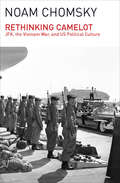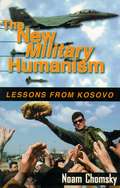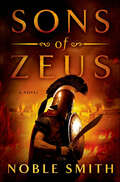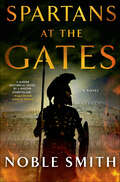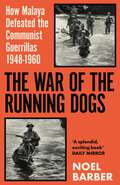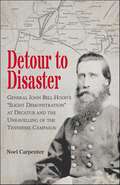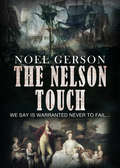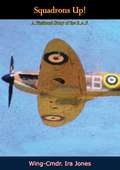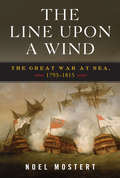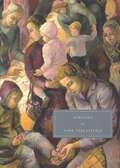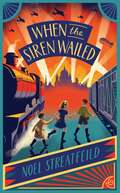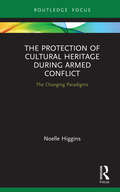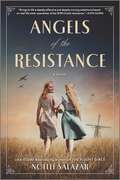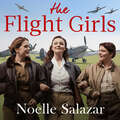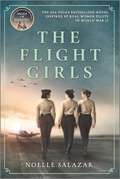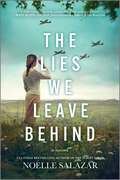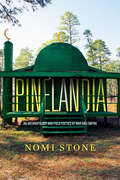- Table View
- List View
Rethinking Camelot: JFK, the Vietnam War, and U.S. Political Culture
by Noam ChomskyThe famed political critic &“analyzes the issue most prominently posed in Oliver Stone&’s film JFK . . . strong arguments against Kennedy mythologists&” (Publishers Weekly). Rethinking Camelot is a thorough analysis of John F. Kennedy&’s role in the US invasion of Vietnam and a probing reflection on the elite political culture that allowed and encouraged the Cold War. In it, Chomsky dismisses efforts to resurrect Camelot—an attractive American myth portraying JFK as a shining knight promising peace, foiled only by assassins bent on stopping this lone hero who would have unilaterally withdrawn from Vietnam had he lived. Chomsky argues that US institutions and political culture, not individual presidents, are the key to understanding US behavior during Vietnam. Rethinking Camelot is &“an interesting work not only for the history it explores, but also as a study of how various individuals and groups write and interpret history&” (Choice). Praise for Noam Chomsky &“Chomsky is a global phenomenon . . . perhaps the most widely read voice on foreign policy on the planet.&” —The New York Times Book Review &“The conscience of the American people.&” —New Statesman &“Reading Chomsky is like standing in a wind tunnel. With relentless logic, Chomsky bids us to listen closely to what our leaders tell us—and to discern what they are leaving out . . . The questions Chomsky raises will eventually have to be answered. Agree with him or not, we lose out by not listening.&” —Business Week &“One of the radical heroes of our age . . . a towering intellect . . . powerful, always provocative.&” —The Guardian
The New Military Humanism: Lessons From Kosovo
by Noam ChomskyAnalyzing the NATO bombing, Chomsky challenges the New Humanism: Is it guided by power interests, or by humanitarian concern? Is the resort to force undertaken in the name of principles and values? Or are we witnessing something more crass and familiar?
Sons of Zeus: A Novel (Nikias of Plataea #1)
by Noble SmithIn 431 B.C., Ancient Greece experienced its own "Pearl Harbor"—a treacherous sneak attack that would mark the start of the bloody war between the democracy of Athens and the tyranny of Sparta. Caught between these superpowers, the independent city-state of Plataea became the arena where their battle for control of all of Greece would begin.In Plataea, the young Greek warrior Nikias dreams of glory in the Olympic games as he trains for the pankration—the no-holds-barred ultimate fighting of the era—until an act of violence in defense of his beloved threatens to send him into exile. But before his trial can take place, a traitor opens the city gates to a surprise attack force.Suddenly trapped inside their own fortress, the Plataeans are fighting for their lives. As Nikias seeks to discover the identity of the man who betrayed the city, he makes a daring escape, gathers an army, and leads this ragtag band into a suicidal battle at the gates of the citadel—a battle that will decide the fates of his family, his friends, and the woman he loves.In the vein of Bernard Cornwell, Conn Iggulden, and Steven Pressfield, Sons of Zeus marks the beginning of a richly detailed new action-adventure series.
Spartans at the Gates: A Novel (Nikias of Plataea #2)
by Noble SmithThe Peloponnesian War has begun. An army of merciless Spartan invaders have arrived at the gates of Plataea, bent on obliterating the independent city-state and its inhabitants. Plataea's oldest allies, the Athenians, are spread too thin in their own campaigns to send help. Cut off and alone, the Plataeans have dug in behind their high walls for the coming attack, while the tyrannical Spartans prepare to lay siege.On a rugged mountain road, a young Plataean warrior named Nikias rides to Athens on an urgent quest. He carries with him a bag of ill-gotten gold, hoping to raise an army of mercenaries to help defend his citadel from the Spartan assault. But in the sprawling stronghold of Athens, Nikias encounters perils that prove to be more dangerous than those he has faced on the battlefield. Noble Smith's Spartans at the Gates transports us to the dawn of one of history's most famous wars--a fight that would tear apart the great powers of ancient Greece.
The War of the Running Dogs: How Malaya Defeated The Communist Guerrillas, 1948-1960 (Sven Hassel War Classics)
by Noel Barber'The story of the first all-out struggle in Asia between Communism and the West, vividly told in an exciting and engrossing book' Sunday ExpressOnly three short years after the end of the Japanese occupation, war came again to Malaya. The Chinese-backed guerrillas called it the War of the Running Dogs - their contemptuous term for those in Malaya who remained loyal to the British. The British Government referred to this bloody and costly struggle as the 'Malayan Emergency'. Yet it was a war that lasted twelve years and cost thousands of lives. By the time it was over Malaya had obtained its independence - but on British, not on Chinese or Communist terms. Here is the war as it was. Here are the planters and their wives on their remote rubber estates, the policemen, the generals and the soldiers, the Malays, Chinese and Indians of a polyglot country, all fighting an astute, ruthless, and well organized enemy.
The War of the Running Dogs: Malaya 1948-1960 (W&N Military)
by Noel Barber'The story of the first all-out struggle in Asia between Communism and the West, vividly told in an exciting and engrossing book' Sunday ExpressOnly three short years after the end of the Japanese occupation, war came again to Malaya. The Chinese-backed guerrillas called it the War of the Running Dogs - their contemptuous term for those in Malaya who remained loyal to the British. The British Government referred to this bloody and costly struggle as the 'Malayan Emergency'. Yet it was a war that lasted twelve years and cost thousands of lives. By the time it was over Malaya had obtained its independence - but on British, not on Chinese or Communist terms. Here is the war as it was. Here are the planters and their wives on their remote rubber estates, the policemen, the generals and the soldiers, the Malays, Chinese and Indians of a polyglot country, all fighting an astute, ruthless, and well organized enemy.
Detour to Disaster: General John Bell Hood's "Slight Demonstration" at Decatur and the Unraveling of the Tennessee Campaign
by Noel CarpenterA detailed account of the pivotal decision made by a young army commander to march to Decatur, and the consequential combat that ensued. In October of 1864, Confederate General John Bell Hood set out through Alabama on what would be the final campaign of the Army of Tennessee. One event in particular, overlooked and misunderstood for generations, portended what was to follow and is the subject of Noel Carpenter’s Detour to Disaster: General John Bell Hood’s “Slight Demonstration” at Decatur and the Unravelling of the Tennessee Campaign. In this fascinating and meticulously detailed and documented account—the first book-length study of the weighty decision to march to Decatur and the combat that followed there—Carpenter investigates the circumstances surrounding these matters and how they overwhelmed the controversial young army commander and potentially doomed his daring invasion. Detour to Disaster is required reading for everyone interested in the Western Theater, and especially the doomed Tennessee Campaign.
The Emperor's Sword: Japan vs. Russia in the Battle of Tsushima
by Noel F. Busch"On this one battle rests the fate of our nation. Let every man do his utmost." From the bridge of his flagship, Mikasa, Admiral Togo signaled the beginning of the battle, standing near the forward rail, his body thrust forward in the determined stance of some classic Japanese war god. A tiny, Napoleonic figure-barely five feet, three inches tall, and weighing less than 130 pounds -Togo carried his Zeiss binoculars(one of three pairs in Japan) and wore his magnificent ceremonial sword, its gold-encrusted scabbard nearly touching the deck. The sword was a gift from Togo's deified Emperor, and symbolized Japan's new drive to world power by domination of the Eastern seas. The Japanese Fleet was drawn up in the Strait of Tsushima between Japan and Korea. A long smudge of smoke on the southern horizon signaled the approach of the Imperial Russian Ships. On the outcome of the Battle of Tsushima depended the fate of Japan and-ultimately-the fate of the U.S. Fleet at Pearl Harbor. One hundred years after Trafalgar, on May 27, 1905, Togo met Rozhdestvensky, Imperial Russia against Imperial Japan, with most of the long- range firepower and weight on the Russian side. This battle would decide world policy in the Pacific for decades to come. The Emperor's Sword is a violent chronicle of war and death at sea, of diplomatic intrigue, heroism, cowardice, stupidity, international politics, and individual tragedy. The backbone of the Russian Second Pacific Squadron were four new battleships, top-heavy and slow. The armada totaled forty-two vessels. Many if not most of the seamen were bitterly hostile to their officers; the crews were untrained conscripts. When Rozhdestvensky lined up his squadron to face Togo, he had already survived an eighteen-thousand-mile journey, mutiny, lack of fuel, a shortage of ammunition, and a series of mishaps that had won his armada the name of "the mad dog fleet." Noel Busch weaves the complex strands of history into a gripping, absorbing narrative of The Emperor's Sword. As history, as adventure tale, and as sobering analysis of the part played by hazard in deciding defeat or victory, The Emperor's Sword is a fascinating chronicle by a master historian- storyteller.
The Nelson Touch
by Noel GersonA sweeping novel of love and war based on the infamous, real-life affair between Lord Nelson and Lady Emma Hamilton—from the author of The Highwayman. 1793, Naples. One of the most tempestuous love affairs in history is about to begin. Europe has been shaken by the recent revolution in France, and the old monarchies wage war to stop its flames of rebellion from spreading to their own lands; at the forefront is Britain and the might of the royal navy. With each victory, Horatio Nelson’s status rises: his independent spirit and dash have won him much renown. But it is not enough. After suffering a rare setback, Nelson finds himself in the Bay of Naples on a diplomatic mission where he encounters the ambassador’s wife, Lady Emma Hamilton. In each other, they find the solace missing from both their lives at a moment that could not have been more critical. Together they set tongues wagging across the civilized world with their ardent, open liaison, but their relationship would prove more lasting than any scandal it provoked. Only the death of Nelson could end it . . .
Squadrons Up!: A Firsthand Story of the R.A.F.
by Noel MonksThis book is the story of the two R.A.F. fighter squadrons [1st and 73rd] attached to the Advanced Air Striking Force in France from September, 1939, until the eve of France’s capitulation in June, 1940. Written by the leading war correspondent of the Daily Mail, Noel Monks, “It is above all a study of the personality of air fighters, no two of whom, according to the author, were alike.”—NY Times
The Line Upon a Wind: The Great War at Sea, 1793-1815
by Noel MostertThe thrilling story of Britain's death-struggle with Revolutionary France, wherein Napoleon is checkmated by Nelson's brilliant naval exploits. In February 1793 France declared war on Britain, and for the next twenty-two years the Revolutionary and Napoleonic Wars raged. This was to be the longest, cruelest war ever fought at sea, comparable in scale only to the Second World War. New naval tactics were brought to bear, along with such unheard-of weapons as rockets, torpedoes, and submarines. The war on land saw the rise of the greatest soldier the world had ever known--Napoleon Buonaparte--whose vast ambition was thwarted by a genius he never met in person or in battle: Admiral Horatio Nelson.Noel Mostert's narrative ranges from the Mediterranean to the West Indies, Egypt to Scandinavia, showing how land versus sea was the key to the outcome of these wars. He provides details of ship construction, tactics, and life on board. Above all he shows us the extraordinary characters that were the raw material of Patrick O'Brian's and C. S. Forester's magnificent novels.
Industry and Air Power: The Expansion of British Aircraft Production, 1935-1941 (Studies in Air Power #Vol. 5)
by Sebastian Ritchie Noel Sebastian RitchieThe author begins with a general survey of British aircraft manufacturing in the inter-war period. Policy, production, finance and contracts are examined, and the final chapter is concerned with the mobilization of the aircraft industry in 1939, and the emergency measures of 1940.
Party Shoes
by Noel StreatfeildSet during and after the second World War, this classic novel tells the story of Selina, who has been sent to live with her aunt, uncle, and cousins in the country. When Selina receives a parcel from her godmother in America it causes much excitement among her and her cousins, and, to Selina's delight, the parcel contains a beautiful party dress and a pair of party shoes. But delight turns to dismay when she realizes that she may never have an occasion to wear such a wonderful outfit - until, that is, she and her cousins come up with an idea of organizing a pageant...
Saplings
by Noel StreatfeildThe four Wiltshire children live a comfortable middle-class English life. But as WWII overtakes the country, the family, like so many others, slowly disintegrates. Told from the perspective of the children, Saplings is immensely readable ... a dark inversion of the author's best-known book, the children classic Ballet Shoes (Sunday Telegraph). Laurel, at eleven, was conscious of being happy. She was almost afraid of it'll never be as happy again. When I'm quite old, as old as thirty, I'll come back to this bit of Eastbourne I'll come on the same day in June and remember me now.
Theatre Shoes
by Noel StreatfeildWhen their father is captured during the war, three children come to London to live with their grandmother and join their talented theatrical family in a school for stage training.
When the Siren Wailed
by Noel StreatfeildA thrilling and moving adventure story about evacuees in World War Two, perfect for readers of Goodnight Mister Tom'A compelling heart-warming story about three children in the Second World War - I loved it.' Jacqueline WilsonWhen war breaks out in September 1939, Laura, Andy and Tim Clark are evacuated to the countryside. The Colonel's comfortable home in Dorset is a huge contrast to their cramped terraced house in London, where their loving parents struggle to put the next meal on the table. Though unused to having children around, the Colonel proves to be a kind and generous, if gruff, guardian until a terrible turn of events means the kids must move on. When they discover they are to live with Miss Justworthy, who is rumoured to feed her evacuees on cat food, Andy insists they can't risk staying. He persuades his sensible older sister and their little brother that they must run away, back to London and their mum. The children are shocked to see London now pitted with craters and ruined buildings. And no sooner have they stepped off the train than the skies are lit by searchlights and filled with the crack of bombs and the glow of fires. How will they be able to find their mum in the middle of an air raid?A brilliantly page-turning read from the author of Ballet Shoes, based on her own real-life experience in the Second World War. Perfect for any child interested in wartime and classic adventure stories.
When the Siren Wailed
by Noel StreatfeildA thrilling and moving adventure story about evacuees in World War Two, perfect for readers of Goodnight Mister Tom'A compelling heart-warming story about three children in the Second World War - I loved it.' Jacqueline WilsonWhen war breaks out in September 1939, Laura, Andy and Tim Clark are evacuated to the countryside. The Colonel's comfortable home in Dorset is a huge contrast to their cramped terraced house in London, where their loving parents struggle to put the next meal on the table. Though unused to having children around, the Colonel proves to be a kind and generous, if gruff, guardian until a terrible turn of events means the kids must move on. When they discover they are to live with Miss Justworthy, who is rumoured to feed her evacuees on cat food, Andy insists they can't risk staying. He persuades his sensible older sister and their little brother that they must run away, back to London and their mum. The children are shocked to see London now pitted with craters and ruined buildings. And no sooner have they stepped off the train than the skies are lit by searchlights and filled with the crack of bombs and the glow of fires. How will they be able to find their mum in the middle of an air raid?A brilliantly page-turning read from the author of Ballet Shoes, based on her own real-life experience in the Second World War. Perfect for any child interested in wartime and classic adventure stories.
When the Siren Wailed
by Noel StreatfeildA thrilling and moving adventure story about evacuees in World War Two, perfect for fans of Goodnight Mister TomWhen war breaks out in September 1939, Laura, Andy and Tim Clark are evacuated to the countryside. The Colonel's comfortable home in Dorset is a huge contrast to their cramped terraced house in London, where their loving parents struggle to put the next meal on the table. Though unused to having children around, the Colonel proves to be a kind and generous, if gruff, guardian until a terrible turn of events means the kids must move on. When they discover they are to live with Miss Justworthy, who is rumoured to feed her evacuees on cat food, Andy insists they can't risk staying. He persuades his sensible older sister and their little brother that they must run away, back to London and their mum. The children are shocked to see London now pitted with craters and ruined buildings. And no sooner have they stepped off the train than the skies are lit by searchlights and filled with the crack of bombs and the glow of fires. How will they be able to find their mum in the middle of an air raid?A brilliantly gripping audiobook from the author of Ballet Shoes, based on her own real-life experience in the Second World War. Perfect for any child interested in wartime and classic adventure stories.(P) 2021 Hodder & Stoughton Limited
The Protection of Cultural Heritage During Armed Conflict: The Changing Paradigms
by Noelle HigginsThis book analyses the current legal framework seeking to protect cultural heritage during armed conflict and discusses proposed and emerging paradigms for its better protection. Cultural heritage has always been a victim of conflict, with monuments and artefacts frequently destroyed as collateral damage in wars throughout history. In addition, works of art have been viewed as booty by victors and stolen in the aftermath of conflict. However, deliberate destruction of cultural sites and items has also occurred, and the Intentional destruction of cultural heritage has been a hallmark of recent conflicts in the Middle East and North Africa, where we have witnessed unprecedented, systematic attacks on culture as a weapon of war. In Iraq, Syria, Libya, Yemen, and Mali, extremist groups such as ISIS and Ansar Dine have committed numerous acts of iconoclasm, deliberately destroying heritage sites, and looting valuable artefacts symbolic of minority cultures. This study explores how the international law framework can be fully utilised in order to tackle the destruction of cultural heritage, and analyses various paradigms which have recently been suggested for its better protection, including the Responsibility to Protect paradigm and the peace and security paradigm. This volume will be an essential resource for scholars and practitioners in the areas of public international law, especially international humanitarian law and cultural heritage law.
Angels of the Resistance: A WWII Novel
by Noelle Salazar&“Angels of the Resistance brings to life a deadly-effective and deeply moving sisterhood.&” —Kate Quinn, New York Times bestselling author of The Rose CodeFrom the bestselling author of The Flight Girls comes a story inspired by true events, about courageous women who risked everything for country, for family, and for each other.Netherlands, 1940As bombs fall across Europe, fourteen-year-old Lien Vinke fears that the reality of war is inescapable. Though she lives a quiet life with her mother and older sister, Elif, in their small town of Haarlem, they are no strangers to heartache, having recently suffered an immeasurable loss. And when the Nazis invade the Netherlands, joining the Dutch resistance with Elif offers just the atonement Lien craves.Trained to shoot by their late father, the sisters are deadly wolves in sheep&’s clothing. They soon find themselves entrenched in the underground movement, forging friendships with the other young recruits, and Lien even discovers a kindred spirit in a boy named Charlie. But in wartime, emotional attachments are a liability she can&’t afford, especially when a deeply personal mission jeopardizes everything she holds dear—her friendships, her family, and her one shot at redemption.&“This story of two teenage sisters who risk everything to join the Dutch Resistance is a dazzling tour-de-force.&” —Karen Robards, bestselling author of The Black Swan of Paris
The Flight Girls
by Noelle SalazarA USA TODAY BESTSELLERA PUBLISHERS WEEKLY BESTSELLERA WOMAN'S WORLD BEST NEW BOOK'I read well into the night, unable to stop. The book is unputdownable' Debbie Macomber, New York Times bestselling author Inspired by the real team of female pilots who trained World War II soldiers, a stunning debut novel about friendship and its power to make us soarAudrey Coltrane has always wanted to fly. It's why she implored her father to teach her at the little airfield back home. It's why she signed up to train pilots in Hawaii when the war in Europe began. And it's why she insists she is not interested in any romance, even with the disarming Lieutenant James Hart, who fast becomes a friend as dear as the women she flies with. Then one fateful day, she gets caught in the air over Pearl Harbour just as the bombs begin to fall, and suddenly, nowhere feels safe.Following the devastating attack, Audrey joins the Women's Airforce Service Pilots, hoping to make everything - and everyone - she's lost count for something. The friendships she forms reignite a spark of hope in the face of a war that moves closer to home every day. When James goes missing in action, those bonds help her summon the courage to cross the front lines and give her the faith that they will return home - together.'The Flight Girls captivated me from the first page and never let go . . . an epic love story, and a powerful tale of courage and sacrifice by the Women Airforce Service Pilots during WWII. A spectacular first novel' Sara Ackerman, author of Island of Sweet Pies and Soldiers and The Lieutenant's Nurse'Unforgettable and beautifully written . . . Salazar masterfully weaves a story of female strength and friendship, with an emotionally resonant epic love story' Jillian Cantor, author of The Lost Letter and In Another Time
The Flight Girls: A Novel
by Noelle SalazarA USA TODAY and PUBLISHERS WEEKLY bestseller—for fans of All the Light We Cannot See and The Tattooist of Auschwitz!&“I read well into the night, unable to stop. The book is unputdownable.&”—Debbie Macomber, #1 New York Times bestselling author&“Heart-breaking, validating, exciting.&”—Hypable&“Rich historical detail...this saga has it all.&”—Woman&’s WorldShining a light on a little-known piece of history The Flight Girls is a sweeping portrayal of women&’s fearlessness, love, and the power of friendship to make us soar.1941. Audrey Coltrane has always wanted to fly. It&’s why she implored her father to teach her at the little airfield back home in Texas. It&’s why she signed up to train military pilots in Hawaii when the war in Europe began. And it&’s why she insists she is not interested in any dream-derailing romantic involvements, even with the disarming Lieutenant James Hart, who fast becomes a friend as treasured as the women she flies with. Then one fateful day, she gets caught in the air over Pearl Harbor just as the bombs begin to fall, and suddenly, nowhere feels safe.To make everything she&’s lost count for something, Audrey joins the Women Airforce Service Pilots program. The bonds she forms with her fellow pilots reignite a spark of hope in the face war, and—when James goes missing in action—give Audrey the strength to cross the front lines and fight not only for her country, but for the love she holds so dear.Don't miss Noelle Salazar's next sweeping story, THE LIES WE LEAVE BEHIND, where a fearless nurse must leave love behind when duty calls her back to the front...More from Noelle Salazar: The Roaring Days of Zora Lily The Flight Girls
The Flight Girls: A Novel Inspired By Real Female Pilots During World War Ii
by Noelle SalazarA USA TODAY BESTSELLERA PUBLISHERS WEEKLY BESTSELLERA WOMAN'S WORLD BEST NEW BOOK'I read well into the night, unable to stop. The book is unputdownable' Debbie Macomber, New York Times bestselling author Inspired by the real team of female pilots who trained World War II soldiers, a stunning debut novel about friendship and its power to make us soarAudrey Coltrane has always wanted to fly. It's why she implored her father to teach her at the little airfield back home. It's why she signed up to train pilots in Hawaii when the war in Europe began. And it's why she insists she is not interested in any romance, even with the disarming Lieutenant James Hart, who fast becomes a friend as dear as the women she flies with. Then one fateful day, she gets caught in the air over Pearl Harbour just as the bombs begin to fall, and suddenly, nowhere feels safe.Following the devastating attack, Audrey joins the Women's Airforce Service Pilots, hoping to make everything - and everyone - she's lost count for something. The friendships she forms reignite a spark of hope in the face of a war that moves closer to home every day. When James goes missing in action, those bonds help her summon the courage to cross the front lines and give her the faith that they will return home - together.'The Flight Girls captivated me from the first page and never let go . . . an epic love story, and a powerful tale of courage and sacrifice by the Women Airforce Service Pilots during WWII. A spectacular first novel' Sara Ackerman, author of Island of Sweet Pies and Soldiers and The Lieutenant's Nurse'Unforgettable and beautifully written . . . Salazar masterfully weaves a story of female strength and friendship, with an emotionally resonant epic love story' Jillian Cantor, author of The Lost Letter and In Another Time
The Lies We Leave Behind: A Novel
by Noelle Salazar&“Noelle Salazar has an unerring instinct for writing tough women with big hearts . . . The Lies We Leave Behind is a globe-spanning wartime journey filled with pathos and heart!&” —Kate Quinn, New York Times bestselling author of The Rose CodeFor fans of Kate Quinn and Beatriz Williams, this sweeping story follows a fearless nurse who must leave love behind when duty calls her back to the front.Somewhere in the Pacific, 1943. Kate Campbell is a nurse who bravely flies back and forth from the front to rescue wounded soldiers, amid long days, harsh conditions and often dangerous weather. Driven by a deep personal need to help in the war effort, she is conflicted when an injury results in her reassignment to the relative comfort of the English countryside.Love has never been part of her plan, but despite herself, she falls for an officer with three bullet wounds, startling blue eyes and a wicked sense of humor. For the first time, Kate sees a future far from the horrors of war and hate. But before she can pursue it, a secret from her past calls her to duty, and she'll have to travel back into danger one more time to rescue a part of herself she'd left behind. But will she make it back? And will that future still be waiting for her if she does?
Pinelandia: An Anthropology and Field Poetics of War and Empire (Atelier: Ethnographic Inquiry in the Twenty-First Century #8)
by Nomi StoneAcross the pine forests and deserts of America, there are mock Middle Eastern villages, mostly hidden from public view. Containing mosques, restaurants, street signs, graffiti in Arabic, and Iraqi role-players, these villages serve as military training sites for cultural literacy and special operations, both seen as crucial to victory in the Global War on Terror. In her gripping and highly original ethnography, anthropologist Nomi Stone explores US military predeployment training exercises and the lifeworlds of the Iraqi role-players employed within the mock villages, as they act out to mourn, bargain, and die like the wartime adversary or ally. Spanning fieldwork across the United States and Jordan, Pinelandia traces the devastating consequences of a military project that seeks to turn human beings into wartime technologies recruited to translate, mediate, and collaborate. Theorizing and enacting a field poetics, this work enlarges the ethnographic project into new cross-disciplinary worlds. Pinelandia is a political phenomenology of American empire and Iraq in the twenty-first century.
